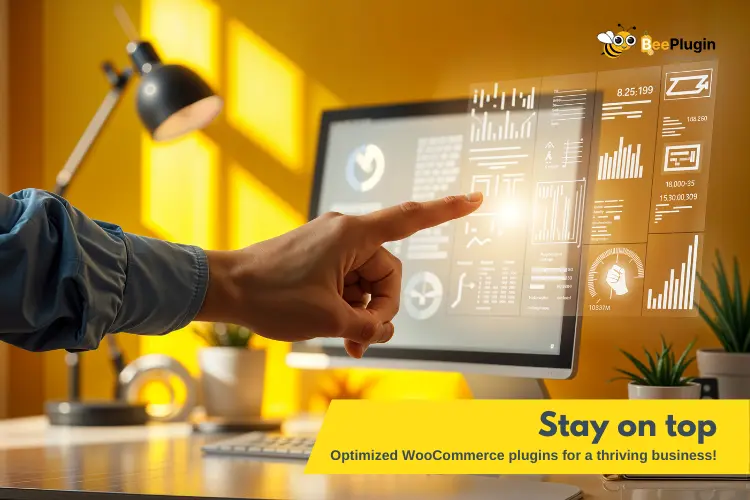In the ever-evolving world of eCommerce, maintaining a competitive edge means keeping your online store in top shape.
For WooCommerce store owners, this often involves managing a variety of plugins that enhance functionality and improve the user experience.
However, it’s not enough to simply install these plugins and forget about them.
Regular updates and maintenance are crucial to ensuring that your WooCommerce plugins continue to perform optimally and securely.
In this blog, we’ll explore the key benefits of keeping your WooCommerce plugins updated and maintained.
Enhanced Security
One of the most critical reasons for regular updates is security.
As technology advances, so do the methods used by cybercriminals to exploit vulnerabilities.
Plugin developers are continually working to patch security flaws and address potential risks.
By keeping your plugins updated, you ensure that you’re benefiting from the latest security patches and improvements.
This reduces the risk of your website being compromised and helps protect sensitive customer information.
Improved Performance
Updates often come with performance enhancements that can make your plugins run more efficiently.
This can result in faster load times, smoother interactions, and overall better user experience.
Regular maintenance helps identify and resolve issues that could be causing slowdowns or conflicts with other plugins, ensuring that your WooCommerce store operates at peak performance.
Compatibility with the Latest WooCommerce Versions
WooCommerce, like all software, undergoes frequent updates to improve functionality, add new features, and address bugs.
To ensure that your plugins work seamlessly with the latest version of WooCommerce, it’s essential to keep them updated.
Incompatibility between plugins and WooCommerce updates can lead to errors, broken functionality, and a poor user experience.
Regularly updating your plugins ensures they are compatible with the latest WooCommerce version.
Access to New Features
Plugin developers often release updates that include new features and enhancements.
By keeping your plugins updated, you gain access to these new functionalities, which can provide additional benefits and improvements for your store.
These new features might include advanced customization options, better integration with other tools, or new ways to enhance the user experience.
Bug Fixes and Stability Improvements
No software is perfect, and plugins can have bugs or issues that affect their performance.
Regular updates typically include bug fixes and stability improvements that address known issues and enhance the overall reliability of the plugin.
Keeping your plugins updated ensures that you benefit from these fixes, which can help prevent crashes and other disruptions to your store.
Compliance with Legal and Regulatory Changes
E-commerce regulations and legal requirements can change over time.
Developers may update plugins to ensure compliance with new laws or industry standards, such as data protection regulations.
Regular updates help ensure that your WooCommerce store remains compliant with relevant regulations, reducing the risk of legal issues and penalties.
Optimized User Experience
An updated plugin can lead to a better user experience for your customers.
Enhancements in design, functionality, and usability can make your store more intuitive and user-friendly.
Regular maintenance helps ensure that your store continues to meet customer expectations and provides a seamless shopping experience.
Improved SEO Performance
Some plugin updates can also impact your store’s SEO performance.
Updates that improve page load speeds, and mobile responsiveness, or integrate with SEO tools can enhance your store’s search engine ranking.
Keeping your plugins updated can contribute to better visibility and higher traffic to your WooCommerce store.
Better Support and Documentation
Updated plugins often come with improved support and more comprehensive documentation.
This can make it easier to troubleshoot issues, understand new features, and get assistance when needed.
By keeping your plugins current, you ensure that you have access to the best support resources available.
Best Practices for Plugin Updates and Maintenance
To make the most of plugin updates and maintenance, consider the following best practices:
- Create Regular Backups: Before applying updates, ensure you have a recent backup of your site to prevent data loss in case something goes wrong.
- Test Updates in a Staging Environment: Apply updates in a staging environment first to test for compatibility issues and ensure everything works smoothly before making changes to your live site.
- Monitor for Plugin Conflicts: After updating, monitor your site for any conflicts or issues that might arise from the new plugin version.
- Stay Informed: Follow plugin developers’ announcements and changelogs to stay informed about new releases and updates.
Conclusion
Regular updates and maintenance of your WooCommerce plugins are essential for keeping your online store secure, performant, and up-to-date.
By prioritizing these practices, you can enhance the security, functionality, and overall user experience of your store, ultimately leading to better customer satisfaction and business success.
Stay proactive about plugin maintenance and reap the benefits of a well-managed eCommerce environment.


 Article
Article
 Infographic
Infographic
 Plugin Development
Plugin Development
 WordPress Development
WordPress Development
 WooCommerce Development
WooCommerce Development






Jay